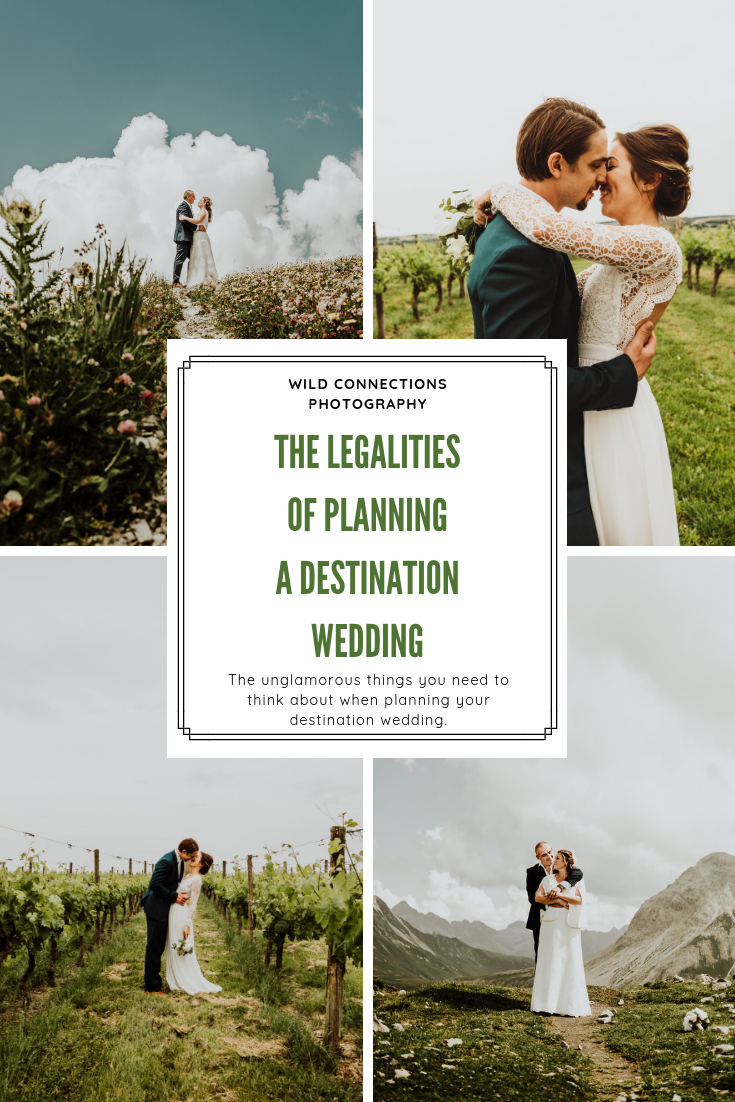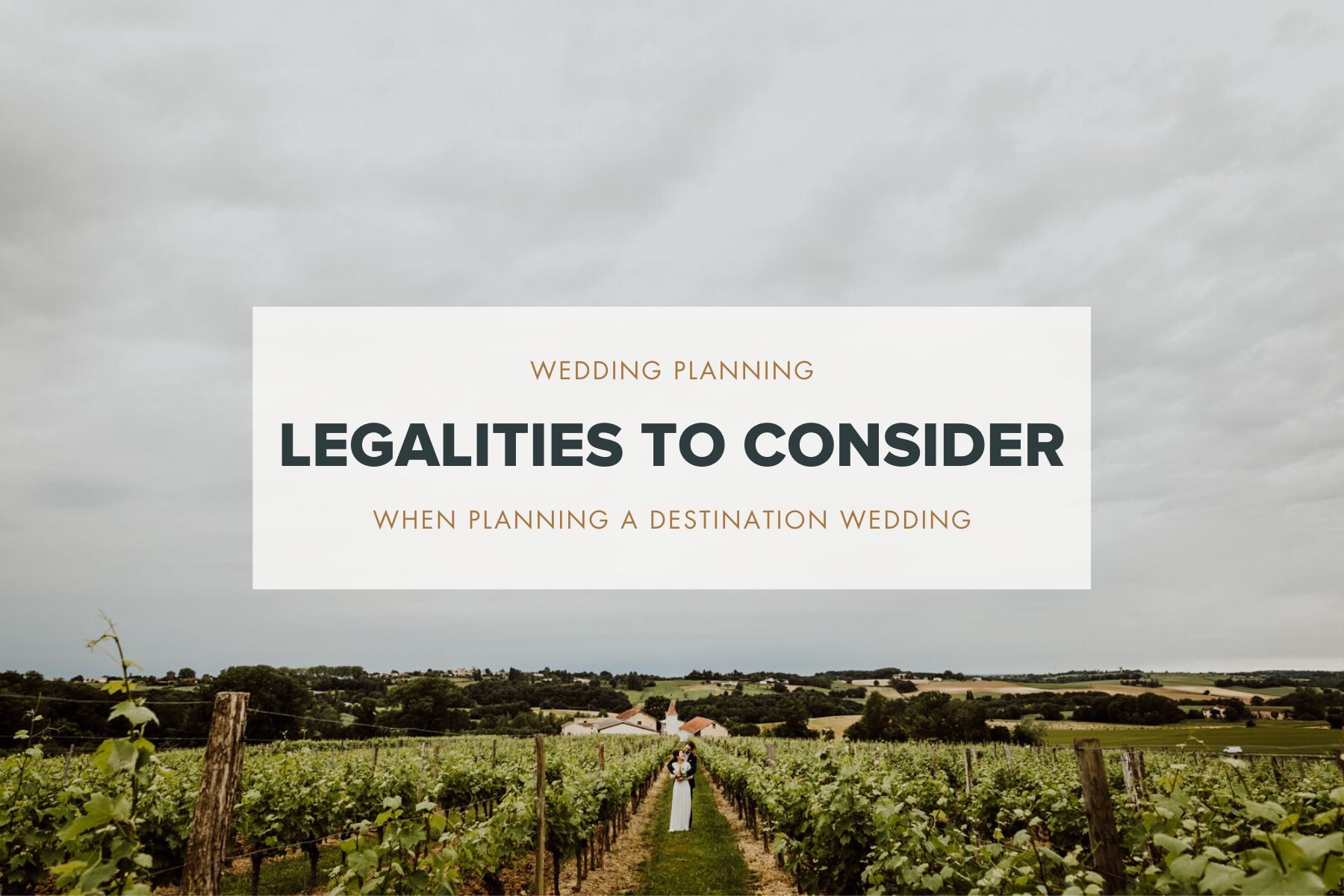The Legalities Of Planning A Destination Wedding
Disclaimer - Some posts on this website contain affiliate links. I may earn a small commission at no extra cost to you if you make a purchase using my links, which I'll almost certainly use to buy more skis and climbing gear.
Whether you’re having a destination wedding or elopement, planning an adventure abroad is really exciting. But sometimes there are some less glamorous, more serious things that you’ll need to think about when you’re making check lists and planning the adventure of a lifetime. Sometimes it’s too easy to get carried away with awesome inspiration from Pinterest or Instagram to forget about the legalities of planning a destination wedding. Whether you’re newly engaged and have just started planning, or you’ve been thinking about things for a few months already, here are some of the less glamorous things that you should think about when planning your destination wedding or elopement.
The Legalities Of Planning A Destination Wedding

Ceremony Legalities
When you come across a picture of a wedding ceremony in a beautiful location, you think “that looks awesome. Let’s get married there too”. But in many European countries, a legally binding ceremony can be difficult to organise, so many couples instead, choose to hold a symbolic ceremony. One of the first things you’ll want to consider is where and when you want to take care of the legal part of getting married. As this will dictate many of the options that you’ll have.
Location Permits
Similarly to ceremony legalities, even if you’re only holding a symbolic ceremony, you might need to apply for permission or a permit to hold an event or take photos in a certain location, such as in a national park or on private property. Too many people have used the excuse “it’s easier to ask for forgiveness than permission” which might be true but it can have really damaging consequences for future couples looking to return to that same location.
Insurance
This might seem like another expense, but the costs of even small weddings can add up. Nobody wants to think about the worst case scenario, but wouldn’t you rather be protected if something was to happen? Things that you’ll want to be covered for that could force you to cancel or postpone your wedding or add unexpected costs include sickness, extreme weather, vendor problems (such as bankruptcy or failure), or property damage. And anything that involves travel, you’ll want to make sure you have insurance to cover things like delayed and cancelled flights, lost luggage and medical cover should you become ill whilst travelling. You’ll also want to make sure that your vendors are insured for things like public liability too.
Vendor Permits
There’s a growing culture of vendors working across the world covering destination weddings, but many of them do so without having the appropriate work permits for the country they are working in. Whilst many do so without any problems, more and more governments are becoming wise to these trends and in some countries, photographers without work permits are fined, arrested or simply refused entry at the border. If you are booking vendors that are not local to the destination where you’re getting married, make sure you get confirmation that they have the appropriate permits to work there.
Cultural Differences
Ok, so this one isn’t technically a legality but it’s also something that many couples encounter. One of the exciting things about a destination wedding is getting to experience a different culture. Don’t forget that different countries can have different traditions and attitudes towards weddings, as well as a different way of doing business. If you choose to have a destination wedding, you have to accept that things can be different to how you’d expect them at home. Just embrace it and enjoy learning curve!

Next Up : Dolomites Elopement Guide










